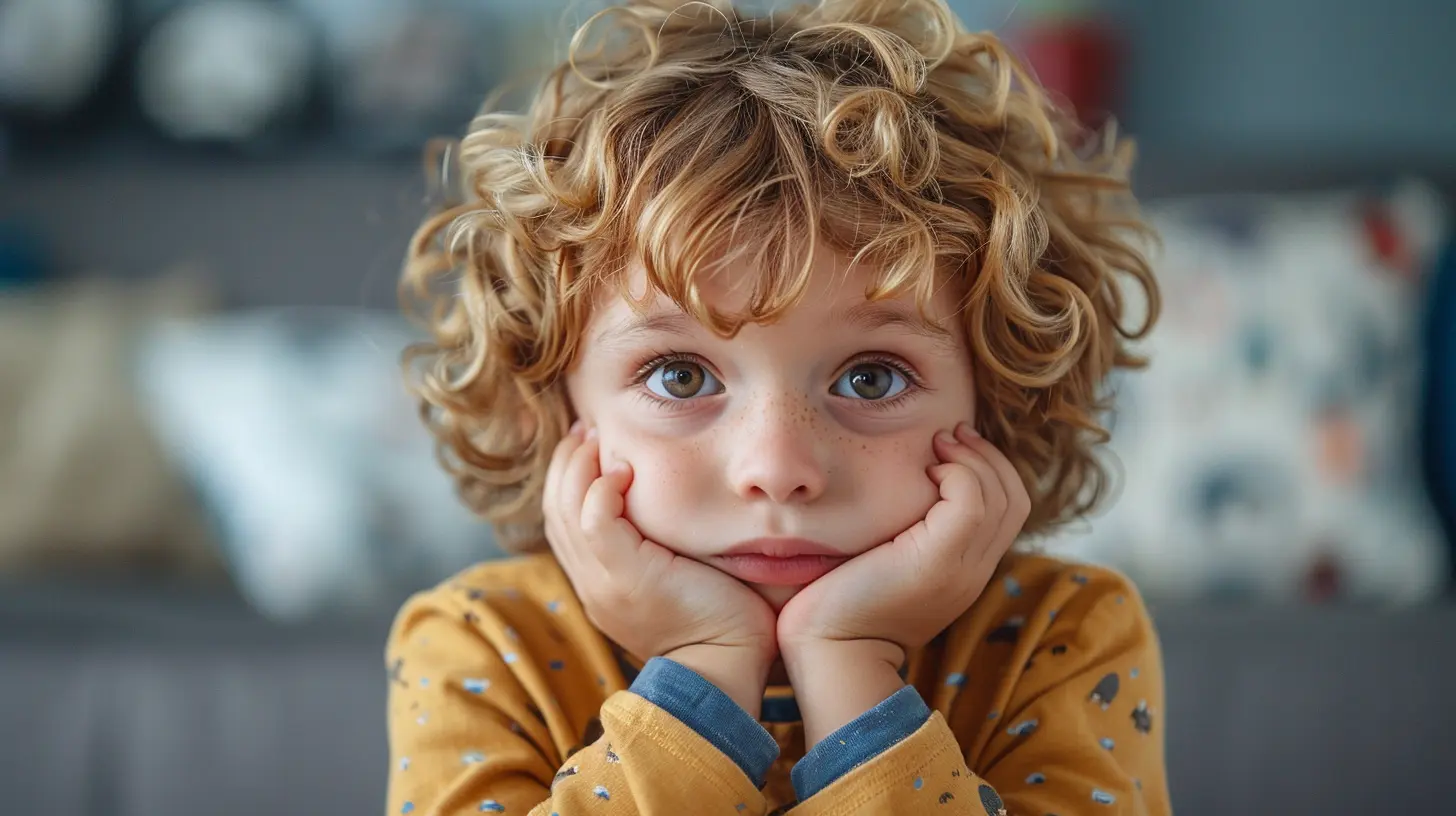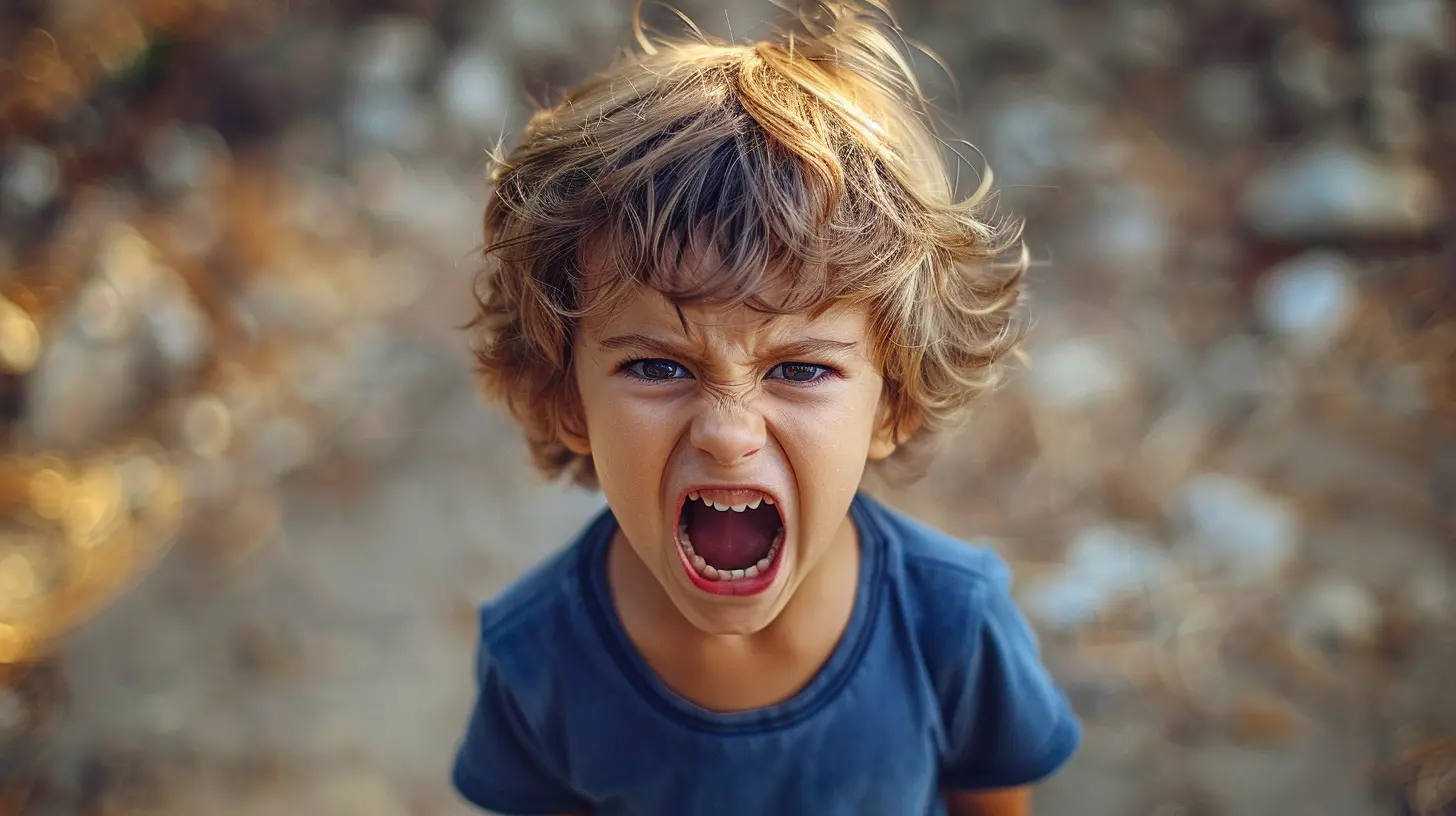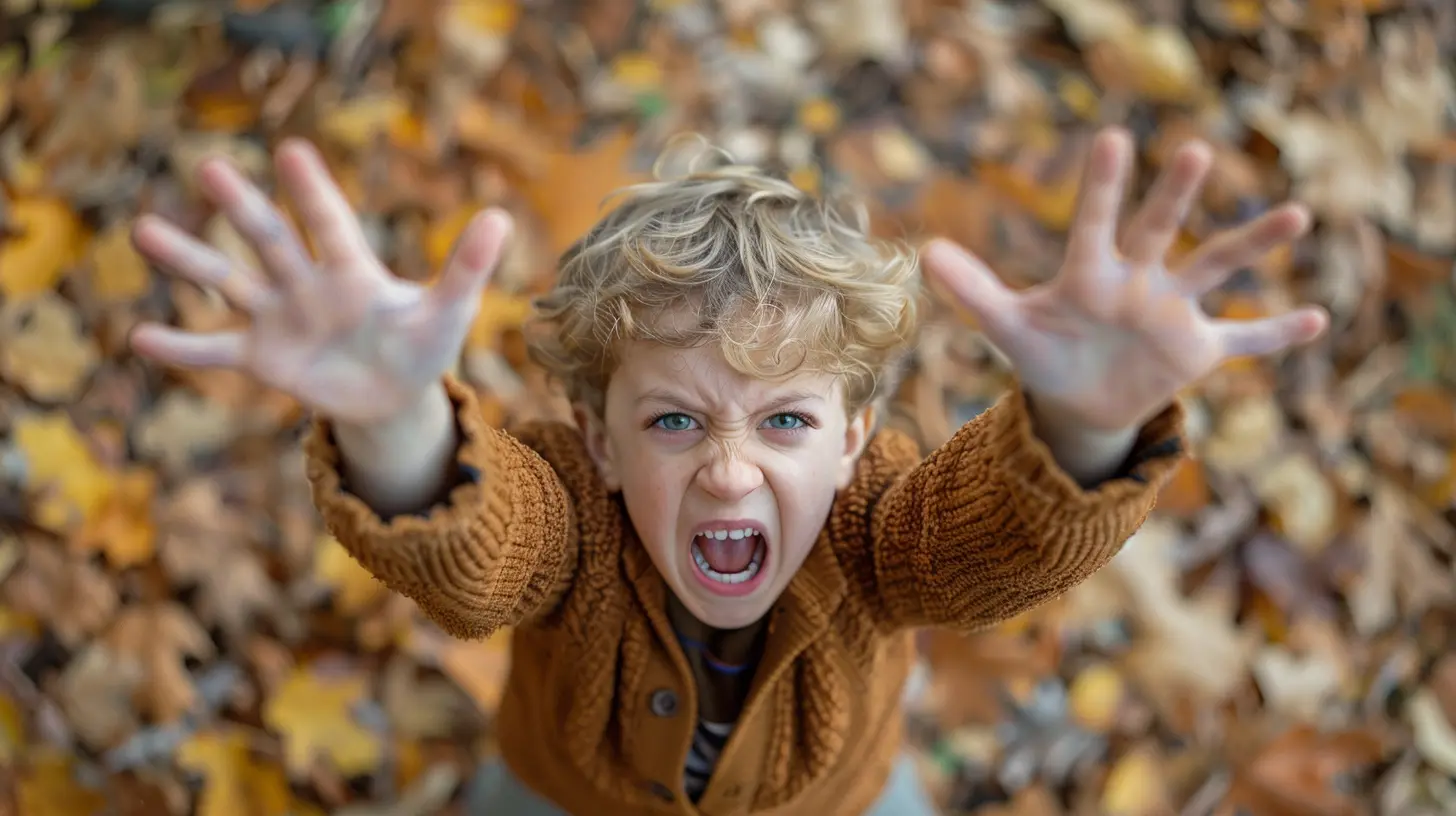Teaching Kids Emotional Regulation: A Parent’s Guide
28 February 2025
As parents, we often find ourselves in situations where our children’s emotions seem to be running the show. Whether it's a toddler throwing a tantrum in the grocery store or a teenager giving you the silent treatment, it can feel like an emotional rollercoaster. But here's the thing: emotional regulation isn't something we're born knowing how to do. It's a skill—one that parents can help their kids develop over time.
In this guide, we'll dive into everything you need to know about teaching your children emotional regulation. We'll explore why it's so important, how to get started, and practical strategies you can use to help your kids manage their emotions like pros.

What is Emotional Regulation?
Before jumping into the "how," let's talk about the "what." Emotional regulation refers to the ability to manage and respond to emotional experiences in a healthy way. This means recognizing emotions, understanding their causes, and figuring out how to express or cope with them without overreacting.Think of emotional regulation like driving a car. Emotions are the fuel, but you need to know when to hit the brakes, when to accelerate, and how to steer in the right direction. Without this skill, emotions can take control, leading to erratic behavior, frustration, and stress—not just for your child, but for the family as a whole.
Why Is Emotional Regulation Important?
Emotional regulation doesn't just affect how kids react in the moment; it lays the foundation for their relationships, academic success, and mental health. Learning to regulate emotions helps children:- Build Stronger Relationships: Kids with emotional regulation skills are better able to communicate their feelings, empathize with others, and resolve conflicts.
- Improve Academic Performance: Emotional regulation helps with focus, self-discipline, and problem-solving—all key components of doing well in school.
- Develop Resilience: Life is unpredictable, and kids who can regulate their emotions are better equipped to handle setbacks, disappointments, and challenges.
Now that we’ve established why emotional regulation is important, let's dive into how you can guide your child to master this essential life skill.

Start with Emotional Awareness
Before kids can regulate their emotions, they need to be able to identify them. Emotional awareness is the first step.1. Name It to Tame It
One of the simplest ways to help your child build emotional awareness is by teaching them to label their feelings. The phrase “name it to tame it” comes in handy here. When your child is upset, encourage them to express what they’re feeling. Are they angry? Sad? Frustrated? Excited?For younger kids, you may need to give them a vocabulary for their emotions. You can say things like, “It looks like you're feeling frustrated because you can't get the toy to work,” or “I see that you're really excited to go to the park.” For older children, you can ask more open-ended questions: “How are you feeling right now?” or “What’s going on that’s making you feel this way?”
2. Use Emotion Charts
Visual aids can be powerful tools for teaching emotional awareness. Creating or using an emotion chart can help younger children recognize different feelings. These charts often feature faces showing various emotions, like happy, sad, angry, or confused.You can ask your child to point to the face that best matches their current emotion. Over time, this can help them better understand their own emotional experiences, making it easier to regulate those feelings.

Model Emotional Regulation Yourself
Kids learn by watching, and guess who's their number one role model? That's right—you. If you want your child to develop strong emotional regulation skills, it’s crucial to demonstrate those same skills in your own life.1. Stay Calm During Their Meltdowns
Let's be real—when your child is throwing a tantrum, it’s easy to lose your cool. But staying calm is key. Showing them how you manage your own emotions, even in stressful situations, sets the stage for them to follow suit. If you’re visibly upset, they’ll likely mirror that behavior.Try narrating your own feelings in the moment: “I’m feeling really frustrated because we’re running late, but I’m going to take a deep breath and figure out what we can do.” This not only shows them what emotional regulation looks like, but also normalizes the fact that everyone has emotions that need managing.
2. Talk About Your Own Emotional Struggles
After a tough day, it can be helpful to share some of your emotional experiences with your child (in an age-appropriate way, of course). Saying something like, “I was really upset when my meeting didn’t go well, but I took a break and went for a walk to calm down” shows them that even adults need to work on regulating their emotions.
Teach Coping Strategies
Once your child can identify what they’re feeling, they need to learn strategies to manage those emotions. Think of these strategies as a "coping toolbox" they can draw from when they need to calm down or process what they're going through.1. Deep Breathing
Deep breathing is an incredibly effective way to calm down when emotions are running high. You can teach your child to take slow, deep breaths by counting to four as they breathe in and out. Practice this technique with them when they’re calm so that they know how to use it when they’re upset.You can even get creative: ask your child to imagine they’re blowing up a balloon or smelling a flower. These visualizations can make deep breathing more engaging and easier for them to understand.
2. Create a Calm-Down Space
Having a designated “calm-down space” is another great tool for teaching emotional regulation. This could be a cozy corner of the house filled with soft pillows, calming toys, or books. When your child is feeling overwhelmed, encourage them to go to this space to take a break and reset.3. Use Positive Self-Talk
Teaching kids to use positive self-talk can help them manage their emotions in difficult situations. For example, if your child is feeling nervous about a test, you can encourage them to say things like, “I’ve studied hard, and I’m going to do my best,” or “It’s okay to feel nervous; I can handle this.”Positive self-talk helps shift their mindset from one of panic or defeat to one of empowerment and resilience.
Help Them Understand Triggers
Every child has emotional triggers—things that set off big feelings. These triggers may be different for every child, but understanding them can help prevent emotional outbursts.1. Identify Common Triggers
Work with your child to identify what tends to trigger their emotional outbursts. Is it sharing toys with siblings? Is it being told “no”? Is it feeling rushed in the morning? Once you’ve identified common triggers, you can work together to come up with strategies to manage those situations.For example, if mornings are a trigger, you might find that creating a more structured routine can help reduce stress. Or if sharing toys is a challenge, you can practice turn-taking with your child during calm moments.
2. Practice Problem-Solving
When your child encounters a trigger, guide them through the process of problem-solving. This teaches them that they have the power to change their emotional response by finding solutions.Let’s say your child gets upset when they can’t play with a toy because their sibling is using it. Instead of reacting impulsively, you can ask them, “What can we do while we wait for the toy?” This helps them focus on solutions rather than emotional overwhelm.
Be Consistent with Boundaries and Expectations
Emotional regulation also involves understanding boundaries and expectations. Kids need to know that certain behaviors, like hitting or yelling, aren’t acceptable, even when they’re feeling big emotions.1. Set Clear Boundaries
It’s important to set clear, consistent boundaries about acceptable behavior. Let your child know that while it’s okay to feel angry or frustrated, it's not okay to hurt others or break things.Consistency is key here. If the rules change depending on the day or your mood, it can be confusing for your child. By sticking to a consistent set of expectations, your child will be able to anticipate consequences, which helps them regulate their behavior.
2. Offer Positive Reinforcement
Finally, don’t forget the power of positive reinforcement. When your child successfully manages their emotions, praise them! Whether they took a deep breath instead of yelling or used words to express their frustration, acknowledging their efforts can go a long way. Positive reinforcement reinforces the idea that emotional regulation is a skill worth practicing.Conclusion
Teaching kids emotional regulation isn’t a one-time lesson—it’s a process. It requires patience, guidance, and, most importantly, practice. But by helping your child build emotional awareness, modeling regulation yourself, teaching coping strategies, and maintaining consistent boundaries, you’re giving them the tools they need to navigate their emotional world.In the end, you're not just raising a child who can handle their own emotions; you're raising a future adult who will be resilient, empathetic, and emotionally intelligent. And isn't that what we all want for our kids?
all images in this post were generated using AI tools
Category:
ParentingAuthor:

Paulina Sanders
Discussion
rate this article
7 comments
Matteo Stone
Emotional regulation isn’t optional; it’s essential. Equip your kids with these skills now, or risk them struggling with emotions later. Act decisively!
April 3, 2025 at 3:29 PM

Paulina Sanders
Absolutely! Teaching emotional regulation is crucial for children's long-term wellbeing. Early guidance sets the foundation for healthier emotional responses throughout their lives.
Anastasia Dillon
Emotional regulation is not just about controlling feelings; it's a vital life skill that shapes a child's resilience and empathy. By fostering open conversations and modeling emotional awareness, parents can nurture a generation capable of understanding and navigating their emotions in a complex world.
March 18, 2025 at 4:49 PM

Paulina Sanders
Thank you for your insightful comment! Emotional regulation indeed plays a crucial role in helping children build resilience and empathy. Open conversations and modeling emotional awareness are key strategies for parents to support their kids in navigating their feelings effectively.
Maribel Nelson
Great tips! Empowering kids through skills!
March 10, 2025 at 3:25 PM

Paulina Sanders
Thank you! Empowering kids with emotional regulation skills is so important for their growth.
Bianca McConkey
This article effectively highlights essential strategies for parents to foster emotional regulation in children. By emphasizing empathy and practical techniques, it empowers caregivers to nurture resilience and healthier emotional expression in kids.
March 6, 2025 at 4:29 PM

Paulina Sanders
Thank you for your thoughtful comment! I'm glad the article resonated with you and provided useful strategies for parents.
Iris Fields
This article offers such valuable insights into teaching emotional regulation! I'm curious about practical techniques parents can use daily. How can we effectively model these strategies in real-life situations? Also, what role does play have in helping kids understand and manage their emotions? Excited to learn more!
March 6, 2025 at 5:32 AM

Paulina Sanders
Thank you for your enthusiasm! Parents can model emotional regulation by expressing their own feelings calmly and demonstrating healthy coping strategies in daily situations. Engaging in play also helps kids explore emotions safely, allowing them to practice problem-solving and empathy in a fun, relatable context.
Halle Horne
Thank you for this insightful article! It's a valuable resource for parents looking to help their children develop essential emotional regulation skills. Your practical tips are both accessible and empowering.
March 4, 2025 at 5:50 AM

Paulina Sanders
Thank you for your kind words! I'm glad you found the article helpful for supporting children's emotional development.
Zinn McKeehan
In the garden of childhood, emotions bloom, Through gentle whispers, we guide their room. With patience as our compass, love as our art, We nurture their hearts, teaching them to chart. For in the dance of feelings, they find their way— A brighter tomorrow starts today.
March 2, 2025 at 5:57 AM

Paulina Sanders
Thank you for beautifully capturing the essence of nurturing emotional growth in children. Your words perfectly reflect the importance of patience and love in guiding their journey.
MORE POSTS

How Chronic Stress Contributes to Psychiatric Disorders

The Effects of Sleep Disorders on Mental Health

How Social Media Impacts the Way We Express Our Emotions

The Power of Affirmations: Boosting Self-Esteem Through Positive Language

The Psychology of Sleep: How Rest Affects Your Child’s Behavior

Nurturing a Child's Sense of Wonder and Discovery